No traffic jams, no downtime, no cold: the main advantages of uST technology in winter
Traffic jams and accidents due to snowfalls, breaks in the catenary, cold in the cabin are typical winter problems of urban transport. UST Inc. has a set of solutions for the safe and comfortable transportation of passengers during the onset of cold weather. Meanwhile, the uST technologies are cheaper to operate and maintain.
Trolleybus
This cost-effective form of urban transport has lost its former popularity largely due to the obsolescence of routes and rolling stock. The reconfiguration of routes and the reconstruction of networks require huge amounts of money.
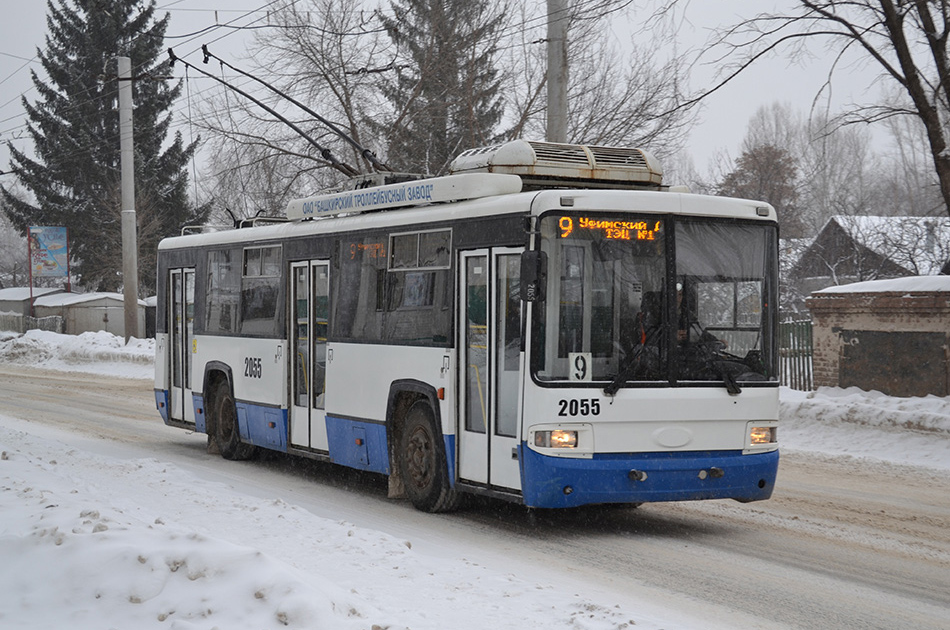
The winter operation of trolleybuses is also associated with certain difficulties: they cannot go on a trip when the wires are icy. This transport is also sensitive to heavy snowfalls and frozen rain that shut down the traffic. For example, at the end of November in Riga, trolleybuses and buses were an hour behind the schedule due to almost 25 centimeters of snow cover.
The electric engine of a trolleybus, unlike the motor, does not heat up, and in many models the cabins are heated by warm guns installed under the seats. Their effectiveness is equal to 10–15%, if the temperature outside is from -20 to -35 degrees. When the doors are opened for 10–15 seconds, cold air almost completely replaces warm air. For example, in Novosibirsk, with a frost of 27 degrees, the thermometer showed about 4.8 degrees Celsius in the cabin of trolleybus.
Tram
Tram exploitation in winter poses several problems. This includes an increase in energy consumption of up to 50% due to the need of heating the cabin, and the ice crust formation of frozen snow and ice on the tram tracks, which makes the movement impossible. This also includes snow freezing on the tram’s contact wire, which stops the entire line. For example, in November in Izhevsk, the traffic stopped on several routes at once due to catenary damage.
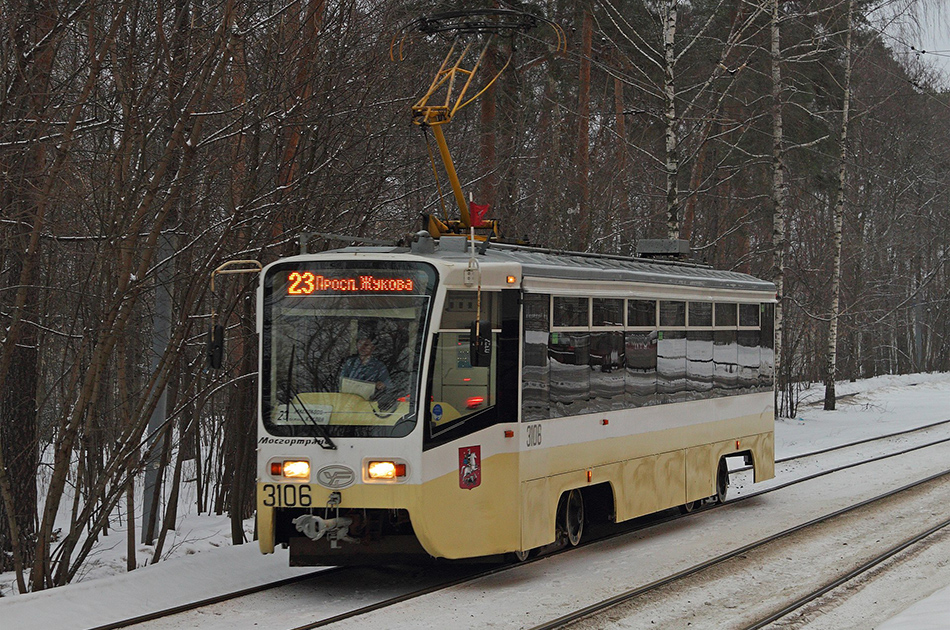
It is not always warm inside the tram for passengers. Older models had stoves installed, but not all places were equipped with them. Warm guns in modernized carriages do not help the situation either: doors that are opened at each stop release the heat.
This problem is especially acute in the northern regions. For example, in Novosibirsk, a local newspaper reported that the temperature in the tram was only +0.2 degrees while it was -27 outside.
Bus
Large amounts of snow and ice can easily shut down the bus traffic. And in such weather, the risk of accidents dramatically increases. For example, in the Primorsky Territory, the passenger bus No. 112 fell into a ditch due to ice because the driver was trying to avoid a traffic jam resulting from an accident with a school bus, which in its turn, appeared due to route icing.
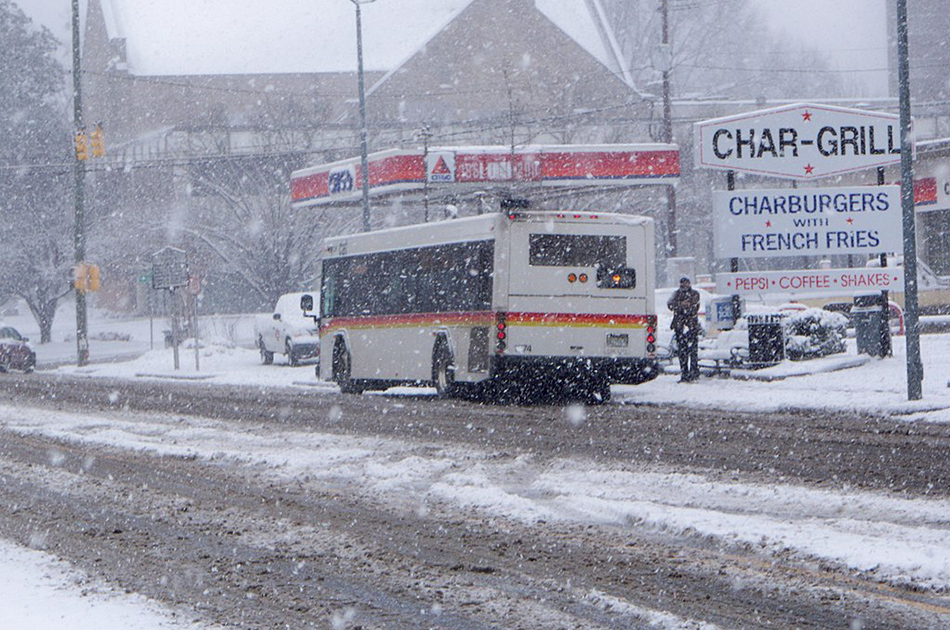
In Munich on December 2, due to heavy snowfall and ice, public transport virtually stopped. Not only city buses did not operate, but also trams.
Maintaining the temperature regime inside a bus in winter is quite difficult, especially if the transport mean is parked outside at night. It takes a lot of time to warm up the bus fully before the trip due to the large volume of the cabin. In addition, while driving, the doors are opened at each stop, and therefore the temperature inside the bus quickly drops.
The problem can be solved by installing additional heaters. But if you do this according to all the rules and standards, it will take a lot of time and money. As a rule, performing such work is unprofitable for the carrier.
uST complex
The uST transport and infrastructure complex is a fully automated system, characterized by high energy efficiency and low material consumption.
The rolling stock of the complex - rail electric vehicles on steel wheels (uPods) - is equipped with its own energy storage devices. Therefore, uPods will always be able to get to the nearest station if the power supply to the line is interrupted.
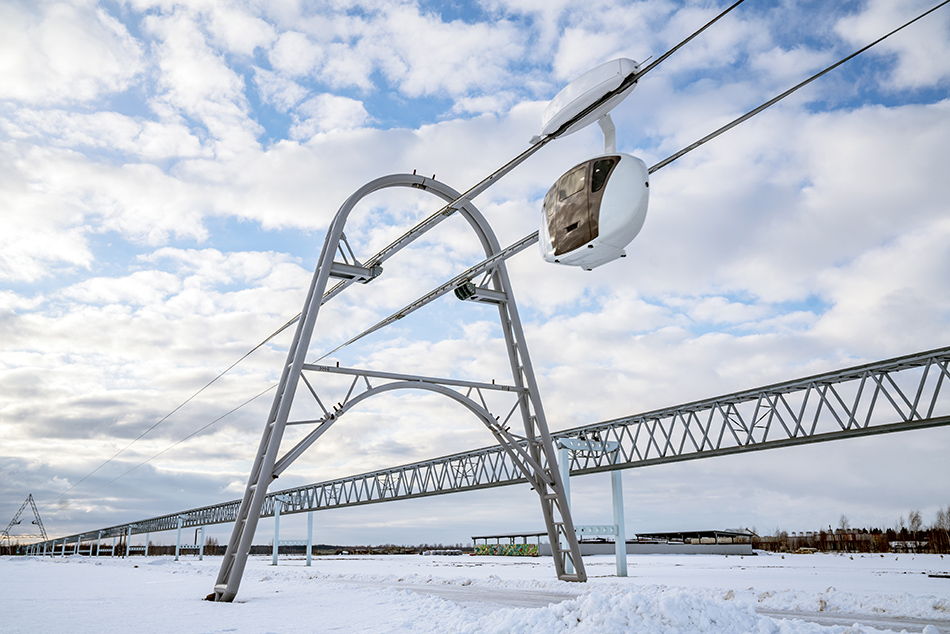
All this gives the uST complex a lot of benefits over ground urban transport. The route of the complex is located above the ground, so sediments and snowdrifts even several meters high are not obstacles to its operation.
Snow and ice cannot accumulate on the narrow (less than 10 cm wide) string rail, which self-cleans every time the uPod’s steel wheels pass over it. Thanks to automation, the uST complex can operate 24/7 – in darkness, fog, and snowfall.
It is very comfortable inside uPods even in severe frost, because they are equipped with a vapor-compression microclimate system. The cabin is also specially heated before transporting passengers.
The windows and doors of uPods are equipped with double tinted glazing with low-emissivity coating. This increases thermal insulation and reduces the load on the air conditioning system.
Comfortable urban transport
Passengers’ comfort is not only a pleasant microclimate in the cabin, but also the traffic according to the schedule. In winter, this is especially important, because no one wants to freeze at a bus stop.
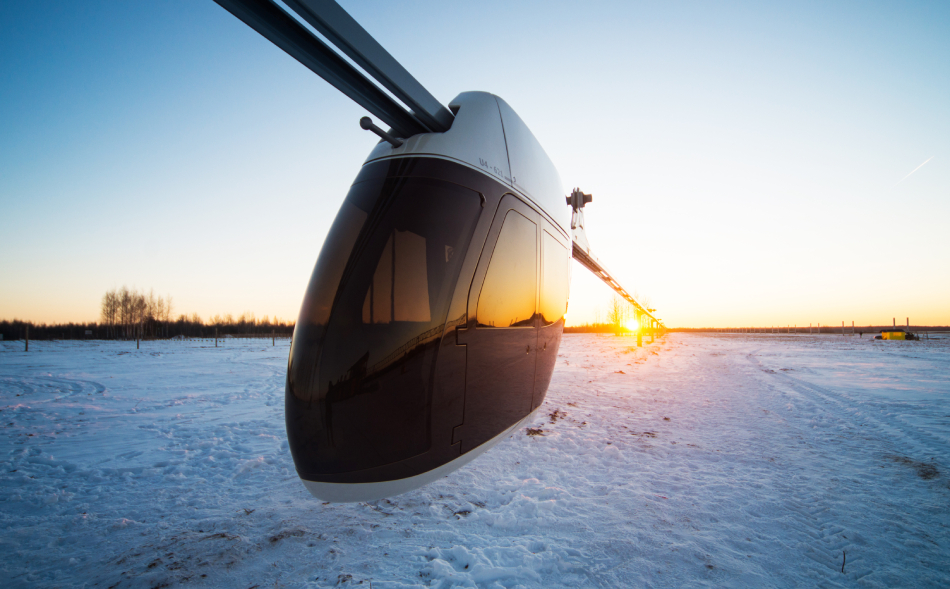
The uST transport and infrastructure complex can relieve passengers from these inconveniences and ensure accurate arrival according to the schedule. Unlike urban ground transport, uST complex is not afraid of bad weather, power outages and traffic jams.
It is also much more efficient in operating, which means it will pay back the owner’s costs quicker and reduce the fares.
More news
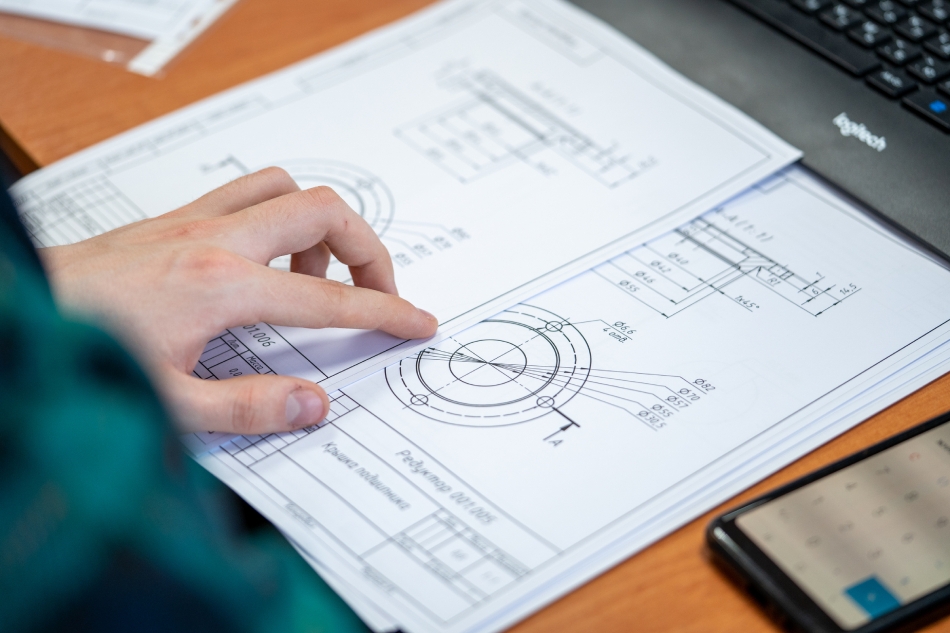
News
26 March 2024
UST Inc. Hosted the Republican Olympiad in Engineering Design CAD
The event was initiated by Mr. Sergey Pronkevich, Head of Engineering Calculations Design Office, as the leading Belarusian expert in this area.
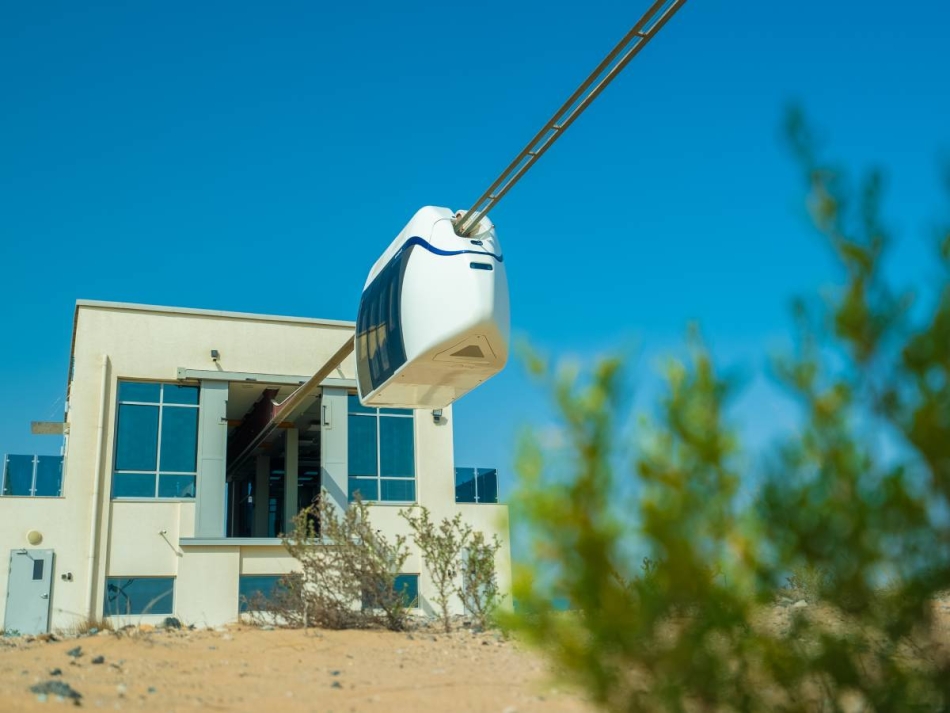
News
14 July 2025
UST Inc.'s Financial Statements Have Been Reviewed as Part of an International Audit
Unitsky String Technologies Inc. has completed an audit of its financial statements for 2024 in accordance with International Financial Reporting Standards (IFRS).

News
21 January 2026
A Lecture Hall Dedicated to String Transport Technologies Opens at One of Kuzbass’ Leading Universities
The room was created with the aim of promoting uST solutions in a region with high potential for their implementation.

